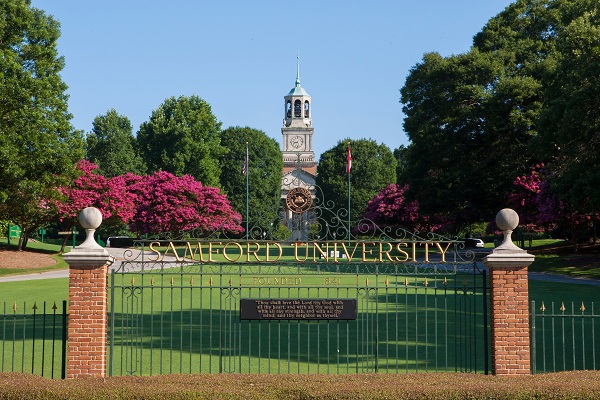
Samford University’s Carnegie Classification® has been elevated to the newly created doctoral/professional universities category, acknowledging Samford’s longstanding commitment to high-quality graduate programs that meet the evolving demands of the marketplace.
The Carnegie Classification of Institutions of Higher Education, or simply the Carnegie Classification®, was created in 1970 and is the framework for recognizing and describing institutional diversity across higher education in the United States. Derived from empirical data on colleges and universities, the framework primarily serves educational and research purposes, and is often used in the study of higher education to identify groups of comparable institutions.
The introduction of the new Doctoral/Professional classification reflects a realignment in how U.S. universities that grant doctoral degrees are evaluated and highlights recent growth in doctoral degrees across the landscape of higher education today. In order to be eligible for the new Doctoral/Professional University category, a university must award at least 30 professional practice doctoral degrees in two or more programs and have no more than $5 million in annual research expenditures.
With established professional practice doctoral programs in law, pharmacy and nursing, Samford has long met the benchmark for this new category. In the 2017-18 academic year, Samford awarded 324 doctoral/professional degrees across five programs, reflecting a 16 percent increase over the past five years. Samford’s spring 2019 enrollment includes 1,282 doctoral students pursuing degrees in audiology, ministry, nursing, pharmacy, physical therapy and law. New doctoral programs in public health and occupational therapy are coming soon.
According to Samford Vice President for Marketing and Communication Betsy Holloway, this new category acknowledges changes reflected in the current landscape of higher education and better accounts for the depth and breadth of the graduate programs offered at Samford today. “Samford has a long history of offering exceptional graduate programs designed to meet the needs of students and the demands of the market,” said Holloway. “We provide a distinct blend of graduate and professional schools coupled with exceptional undergraduate programs grounded in the liberal arts. This new classification reflects the wonderful diversity of academic degrees offered across our university today.”
